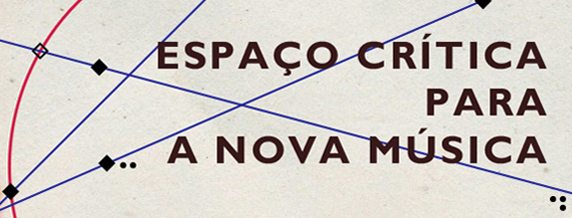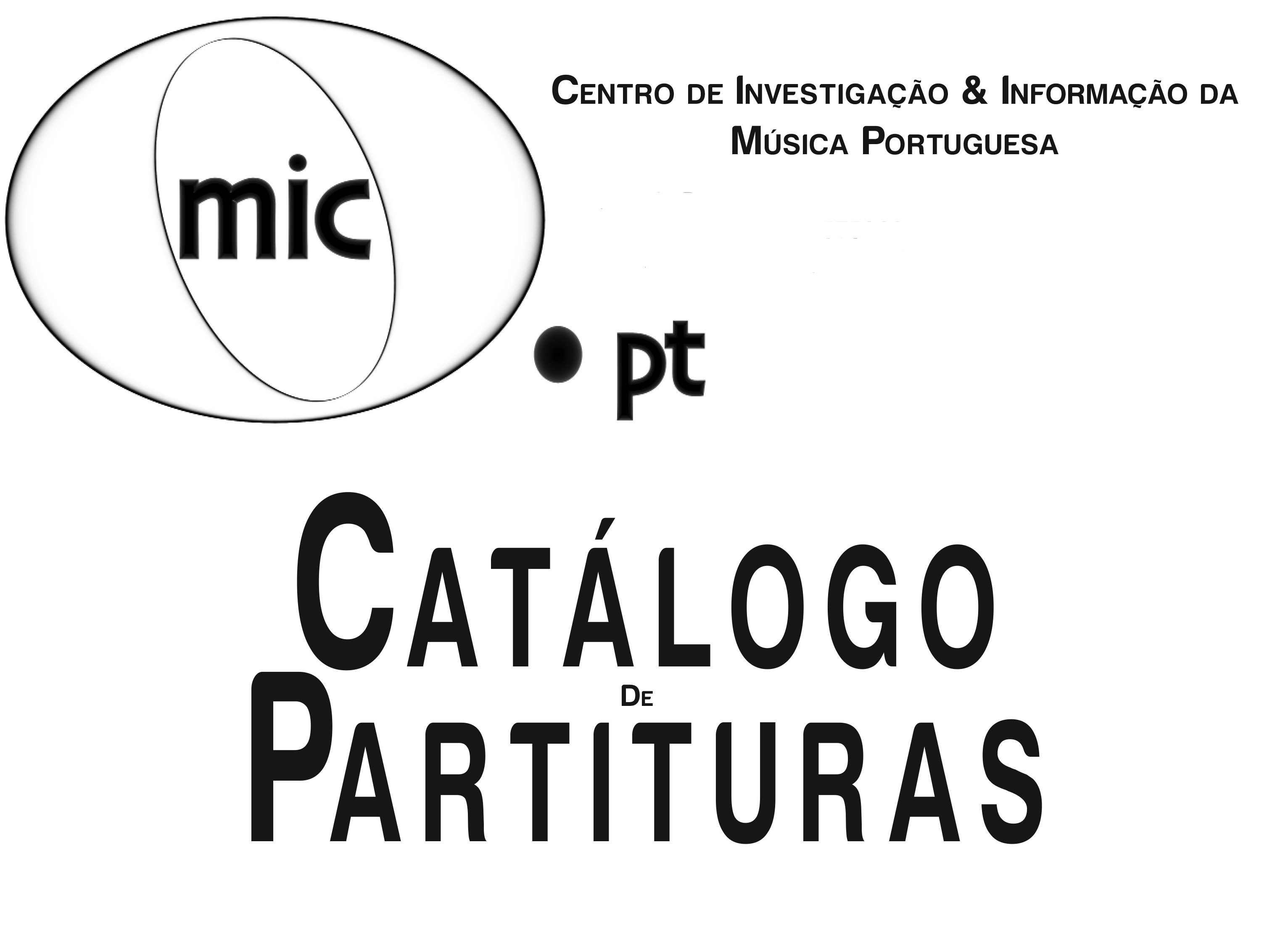Manuela Paraíso
On the 75th anniversary of Constança Capdeville, 20 years after her passing, we live in a time when more and more women enrich with their creations the Portuguese patrimony and musical life. Nevertheless they are still a minority when compared to their masculine colleagues.
Looking back at the history of Portuguese music, the number of currently active women composers seems immense. The number of around thirty women with an important function in the present Portuguese music life (even if improperly acknowledged), contrasts with the almost complete lack of feminine musical creation preceding the second half of the 20th century, when Berta Alves de Sousa, Francine Benoît and the young Elvira de Freitas, Maria Teresa Macedo, Isabel Lupi and Natércia Couto constituted the exception to an absence which, in the past, only very occasionally had been filled, with such examples as Dona Maria Bárbara de Bragança, the cultivated daughter of King John V, or Leonora Duarte, a Flemish of Portuguese origin who wrote works for ensemble of violas da gamba. However, looking back only some forty or fifty years from the present moment, to a time of change in the western world which established new paradigms in art, particularly in music, and brought the feminine emancipation, the women exercising the métier were still sparse, yet they awakened an indelible influence which persists until today: not only a gentle revolution under the name of Constança Capdeville, whose creative flux conceived a music free of dogmas, framed in an ample scenic component, but also examples such as Maria de Lourdes Martins Maria de Lourdes Martins and Clotilde Rosa – the second one still active, only belatedly initiated in the scope of composition, since 1974 within the Lisbon Contemporary Music Group, after two decades of performing as harpist and attending the Darmstadt courses.
A Heritage of Liberty
It should not be a big surprise that there are not many Portuguese women composers born before 1970. The circumstances of the country’s musical life until the 21st century did not favour the development of careers in composition, due to lack of opportunities of new works’ performance as well as scarcity of commissions, therefore lots of young composers resigned just at the beginning of their activities. In the case of women, for whom the musical career tradition reserved the functions of performer or teacher, this effect is even more evident – and one can almost think of the ones that persisted, not only in the category of tenacity but also nonconformity. The free spirit as well as the intellectual and artistic curiosity of Clotilde Rosa (born in Lisbon, 1930), made her surpass the usual limits of her work as orchestra instrumentalist, leading her to the interest in the practice of early music and to the development of studies in composition, as a result of her approximation to contemporary aesthetics – through the work and influence of Jorge Peixinho, who encouraged her to write music. As composer, Clotilde Rosa imposed her own style of lyrical character, apparent in the compositions for voice, but also for orchestra and chamber ensemble.
Equally influenced by Jorge Peixinho, with whom she studied composition, Isabel Soveral (born in Porto, 1961) belongs to a generation formed already with the support of new technologies and interested in the practice of electroacoustic music – which she developed within her Master’s and PhD thesis at Stoney Brook, New York, and which occupies a considerable part of the corpus of her work. Her music includes cycles based on poems and pieces for orchestra (some of them with spatialization), chamber ensemble, solo instruments, several of which were presented around Europe and in other countries. Although part of her work was recorded for phonographic edition (as on the emblematic CD “Três Compositoras Portuguesas”, from 1994, which also includes works by Constança Capdeville and Clotilde Rosa), Isabel Soveral has only one monographic CD – one of the discs from the album “Pas de Deux” (the second one is dedicated to António Chagas Rosa). With a different course, which encompassed the Licentiate in Composition at the ESML, Escola Superior de Música de Lisboa (the Superior School of Music in Lisbon), and includes a PhD at the Sorbonne-Paris IV University on the application of new technologies to music and their influence in compositional process, as well as in performance of mixed music pieces, Elsa Filipe (born in Lisbon, 1962) composes instrumental works for orchestra and for small ensembles, acousmatic music and mixed music, apart from musical arrangements, having had some of her works presented at various editions of the Música Viva Festival. Likewise, assiduously represented at this event and also connected to the French capital, where she made her PhD (Paris VIII) in Aesthetics, Science and Technology of Arts, Isabel Pires (born in 1970) develops her work in composition and investigation within the framework of interaction between music and technology, writing instrumental, electroacoustic and acousmatic music – being performer of the latter, with sound projections realized in various European countries and having been awarded in Belgium for the work in live sound spatialization. Connected with the Aveiro University, where she lectures and belongs to a group of composers-professors who have various works recorded on collective CDs, Sara Carvalho (born in Porto, 1970) had her first monographic CD published in June this year, under the title “7 Pomegranate Seeds”. With PhD in Composition at the York University, she represents particular interest in the interaction between performing arts as extension and transformation of musical thought, as well as in all the aspects associated with musical narrative. She has composed more than thirty works for solo instruments, ensembles and orchestra, many of them performed regularly in Portugal and abroad.
The catalogue of Ângela Lopes (born in Ovar, 1972), who graduated from composition at the ESMA, Escola Superior de Música e Artes do Espectáculo do Porto (the Superior School of Music and Performing Arts in Porto), with a PhD in progress at the Aveiro University, includes commissions from various institutions, works for orchestra, choir, chamber, solo and electroacoustic music, the chamber opera “A Floresta em Dodona”, as well as music for image and multimedia – some of them were presented in concert, in Portugal and other countries, as well as recorded on CD. She has collaborated in the technical and electroacoustic realization of Cândido Lima’s works, with whom she studied composition, as well as with the Grupo Música Nova and the MC47 – a mixed music ensemble directed by Virgílio Melo. She participated in the 1st Gulbenkian Orchestra Workshop for Young Portuguese Composers, in 2003 – just as Patrícia Sucena de Almeida (born in 1972), also chosen for the three subsequent editions of this event, as well as for the IRCAM and Darmstadt courses, among others. Having graduated from Music Education at the Aveiro University, with Master’s Degree in Composition at the Edinburgh University and PhD at the City University London and at the Southampton University, at the moment she is developing a postdoctoral project, related to new concepts of interaction between diverse arts and musical language – an interest also assumed in her creation on two fronts, composition and photography. She has signed works for various geometries, instrumental, electroacoustic, which have been performed in various countries, and received commissions from different institutions, having had her works recorded on CD.
The New Generations
It is in the generations under the age of 40 where one can find the majority of active Portuguese women composers; and one should understand why: just like for their masculine colleagues, the opportunities have been multiplied due to various factors – the interest, in the course of academic education, of fellow instrument students to perform their works (to name one relevant example, the recently established event, Peças Frescas Festival, organized by the ESML), the appearance of initiatives such as orchestra workshops for composers, commissions by musicians, groups or structures (as the ones regularly delivered over the last few years by the Prémio Jovens Músicos-Young Musicians Award of the Antena 2, the public classical music radio station), creation of composition competitions, either with monetary awards or editing in score and CD of the distinguished works. This creation of working possibilities constitutes an important incentive, nevertheless still insufficient when compared to those offered in other countries – and so the choice of Andreia Pinto-Correia to establish her residence in the United States, after concluding the Master’s Degree in Composition at the New England Conservatory in Boston, gave her a progression in career, as well as a recognition unthinkable in Portugal, with frequent commissions, awards, artistic residencies on the part of prestigious institutions. Initially a jazz composer and performer, she also studied Music for Cinema, but chose to be a concert composer with works for multiple geometries, incorporating, within a contemporary language, jazz influences, as well as Portuguese and Mediterranean music traditions. Just as Pinto-Correia, Sofia Borges (born in Lisbon, 1979) passed through the Luis Villas-Boas Jazz School of the Hot Clube of Portugal, but did so in the course of her career as percussionist with an interest in ethnomusicology, that led her to graduating from composition at the ESML and to a Master’s Degree course, presently in progress, at the Hochschule für Musik und Theater in Hamburg. She has had various works premiered, at the Peças Frescas Festival, during the Miso Music Portugal Concert Season and by the New Lisbon Orchestra.
In the north of Portugal, various women composers have made their education at the Aveiro University or at the ESMAE. Fátima Vieira (born in Porto, 1974) studied the Recorder and Piano, having dedicated herself subsequently to Composition and concluded the licentiate at the ESMAE in 2009 with various work premiered at Portuguese concert halls. Teresa Gentil (born in Tondela, 1982), who graduated from the same institution, divides her activity in musical creation between contemporary music, with works written for and performed by diverse orchestras and instrumental groups, composing for theatre and cinema and her work within Portuguese traditional music, as founder of a cultural collective on the Azores with aims of social intervention. Ângela da Ponte (born in Ponta Delgada, 1984), who equally graduated from Composition at the ESMAE, presently is a Master’s Degree student in Composition at the Birmingham University and develops her activity as composer at the Conservatório Regional de Música de Vila Real, where she teaches. She has written works for orchestra, ensemble, solo instruments and electronic music and participated in the 8th Gulbenkian Orchestra Workshop for Young Composers, having been also awarded at the competition for young Azorean creators, Labjovem. In 2011 she was Young Composer in Residence at the Casa da Música, where she premiered three works. Another composer who graduated from the ESMAE, Fátima Fonte (born in São Pedro de Rates, 1983), won in 2007 the Póvoa de Varzim International Composition Competition, in the category of Chamber Music. In the following year she wrote a piece in response to a commission by the Prémio Jovens Músicos and had her works performed by various formations. She received a scholarship from the Oriente Foundation to study classical Hindu in India. Olga Pereira, native of Lamego, concluded her Licentiate course at the Aveiro University (having studied with Isabel Soveral and João Pedro Oliveria) and also Master’s Degree on Instrumental Composition and Electroacoustic Music. She also studied at the Hogeschool Gent in Belgium. One of her works, recorded on CD (Miso Records), received an honorary mention at the Música Viva 2002 International Electroacoustic Composition Competition, having been presented at the Música Viva 2002 Festival and also in Seoul and in Cuba. Also related over the last few yearsto the Aveiro University, where she teaches and concluded her PhD in Composition and Electroacoustic Music, Petra Bachratá (born in Krupina, Slovakia, 1975) developed, in parallel, her superior formation in Music and Neurology, in Bratislava. Various of her works were selected and awarded at international competitions in Europe, as well as performed at European festivals, in the United States, South America and recorded on CD.
In the south, the Superior School of Music in Lisbon has educated various young creators, such as Sílvia Mendonça (born in Marinha Grande, 1977) who graduated from Composition in 2009, eight years after her Licentiate in Industrial Design. The composer presently attends, at the ESMAE, the second year of Master’s Degree in Composition and Music Theory. She received honorary mentions at the 2nd Fernando Lopes-Graça International Composition Award and at the 1st D. Dinis Composition Competition. She also participated in the 6th and 7th Gulbenkian Orchestra Workshops for Young Composers, in the Sound Walk installation of the Música Viva 2009 Festival, as well as other events. After interrupting a quite early musical education, Vanessa Valério (born in 1978) resumed her musical studies, while attending the 4th year of a Licentiate course in Interior Architecture, having entered in 2007 the Composition Course of the ESML, where she worked in the organization of the Peças Frescas, having had three of her pieces performed at this Festival. In 2009 she participated in the 7th Gulbenkian Orchestra Workshop for Young Composers and had a work premiered in response to a commission by the Festival Cistermúsica. In parallel to her musical studies, Piano and Bagpipe, before graduating from Composition at the ESML, Lea Brooklyn Cardoso (born in Iowa, the USA, 1986) studied Geological Engineering and Mining. Presently she attends the Master’s Degree in Composition at the Musikhögskolan i Malmö in Sweden. In her works, which have been performed in Portugal, namely by the Lisbon Sinfonietta and the Coro Ricercare, as well as in the United States, she explores composition for voice, an uncommon use of instruments, having particular interest in experimentation and improvisation. Carla Louro (born in Lisbon, 1982) is another woman composer whose career began by studying instruments (Organ and Violoncello), before having graduated from Composition at the ESML. She participated as performer in various events. Some of her works were premiered at the Peças Frescas Festival and at concerts of the New Lisbon Orchestra. Presently she is realizing a Master’s Degree in Musical Arts: Studies in Music and Technology, at the Faculty of Social Sciences and Humanities of the Universidade Nova de Lisboa (the New University on Lisbon).
Among the new generation of composers educated at the ESML, Ana Seara, Sofia Sousa Rocha and Sara Claro derive from the only Secondary Education Composition Course existing in Portugal at the Calouste Gulbenkian Music Conservatory in Braga. Ana Seara (born in Coimbra, 1985) concluded her Licentiate in 2007 and her Master’s Degree at the Évora University. Her works were distinguished at various composition competitions, such as the Póvoa de Varzim International Composition Competition, where she achieved, on the first three editions, the first and second awards, apart from an honorary mention. She had her works commissioned by the Prémio Jovens Músicos, the OrchestrUtópica, the Oeiras and Cascais Municipality Chamber Orchestra, as well as the Lisbon Contemporary Music Group. She took part in two initiatives by the Sond’Ar-te Electric Ensemble, the 1rst Reading Pannel and the 1st Young Composers Forum. In 2012 she was chosen for the Gulbenkian Orchestra Workshop for Young Composers, held in collaboration with the European Network of Opera Academies-ENOA, and as one of Miso Music Portugal’s official submissions to World New Music Days 2013. Her music was performed at such festivals as the Música Viva, Portuguese Music Today, the ESML Music Festival, where she worked as organizer, and at the Peças Frescas Festival, where one could listen to her works, as well as those of Sofia Sousa Rocha (born in Braga, 1986), who has recently concluded her Master’s Degree in Music at the ESML, under the supervision of António Pinho Vargas. In 2008 she obtained, in the Orchestra Category, the 1st award at the Composition Competition held by the Lisbon Superior School of Music and the National Museum of Archaelogy, like Ana Seara, one of her works was chosen to integrate the programme of the Season 2008/09 of the Algarve Orchestra, following her participation in the Score Reading Workshop of this formation. She was selected for the 7th Gulbenkian Orchestra Workshop for Young Composers and had her works commissioned by the Prémio Jovens Músicos and by the Alcobaça Music Festival. Her music has been performed by the Coro Ricercare as well as the Lisbon Sinfonietta, and her short opera “Inês morre” was premiered in March 2012 at the São Carlos National Theatre. Sara Claro (born in Porto, 1986) made a similar course, having graduated from Composition in 2007, and having been involved during her studies at the ESML in the organization of the school’s Festival and the Peças Frescas event, having had her works presented at most of these concerts. Like her colleagues, she composed for the Prémio Jovens Músicos and participated in the Algarve Orchestra Atelier. In 2007 she was the invited composer of the OrchestrUtopica for a concert at the Culturgest, and by pianist Olga Prats who recorded one of her pieces on CD. She also composed the soundtrack for a short film by Samuel Amaral, “E Se Eu Fosse Lá Abaixo Rir Um Bocado”.
Among the Portuguese women performers active in composition, some oriented their academic careers and work, above all, in the field of interpretation but dedicate part of their time and enthusiasm, even though occasionally, to writing music. One can name here such examples as the mezzo soprano and pianist Isabel Jacobetty (born in 1981), also pianist Yuki Rodrigues (born in 1973) and, with more regularity, the violinist Anne Victorino d’Almeida (born in Piossy, France, 1978), who has been composing for orchestra and chamber music, having her works performed by such formations as the Lisbon Sinfonietta, the Lisbon Metropolitan Orchestra and the Lopes-Graça Quartet, to which she belongs. She assigned soundtracks for various films (as the documentary “Cartas a uma Ditadura” by Inês de Medeiros, and the short film “Stroke” by Sofia de Bottom) and music for theatre shows, having received the award for the best musical proposal at the competition “Teatro na Década 97”. With an intensive activity in musical creation connected with experimentation and transdisciplinarity, even if not holding a degree in Composition, one can situate such names as Paula Azguime, Adriana Sá and Joana Sá. The first, born in Lisbon in 1960, developed a career of creation, eversince the appearance of the Miso Ensemble she founded along with Miguel Azguime, but also of cultural production and management, which permitted the appearance of structures such as the Miso Music Portugal and its studio, the Portuguese Music Research & Information Centre, among many others. Apart from her activity as flutist, she has given priority to her work as sound designer and stage director of musical theatre and opera. Adriana Sá (born in 1972), with an education connected to visual arts and music, is an interdisciplinary artist, improviser, who uses unconventional means and processes, such as amplified wires stretched out in space and instruments controlling sound through light, in performances-installations, which she has presented in various European countries, in the United States and Japan. Pianist and improviser Joana Sá (born in 1979), a piano licenciate, develops individual and collective transdisciplinary and improvised music projects (with such groups as Powertrio and Máquina Lírica, to which she belongs, as well as with visual artists, Rita Sá and Pedro Diniz Reis). She has performed at various international festivals and realized works edited on CDs and DVDs, such as her solo project “through this looking glass”.
Portuguese Women Composers on YouTube
Constança Capdeville
"Amen para uma ausência" (1987)
Clotilde Rosa
"Ricercari" (1983/84)
Tokyo Symphony Orchestra, Naoto Otomo (conductor)
Isabel Soveral
"Ciclo Shakespeare, since brass nor stone" (2007) Frances M. Lynch – soprano
Elsa Filipe
"Kartina" (1998/99)
Lisbon Metropolitan Orchestra
Isabel Pires
"Sento che nel partire" (2004)
Ensemble Densité 93
Sara Carvalho
"...a distant mirror" (2003)
Nancy Lee Harper – piano
Patrícia Sucena de Almeida
"Argumentum – Obniti Adversis" (2001)
Remix Ensemble Casa da Música, Sarah Ioannides (conductor)
Sofia Borges
"Travessa do fala-só" (2007/08)
ESML Ensemble
Sílvia Mendonça
"Cubo" (2008)
Gulbenkian Orchestra, Joana Carneiro (conductor)
Vanessa Valério
"Imagens" (2008)
Gulbenkian Orchestra, Joana Carneiro (conductor)
Carla Luro
"Ressonâncias" (2008)
ESML Ensemble
Ana Seara
"Três telas de Barceona" (2007)
Katharine Rawdon – flute
Nuno Pinto – bass clarinet
Elsa Silva – piano
Sofia Sousa Rocha
"Homenagem a Berio" (2003)
Sara Claro
"Olhos de Mar" (2008)
Ricercare Choir
Lisbon Sinfonietta, Vasco Pearce de Azevedo (conductor)
Isabel Jacobetty
"Debaixo do céu" (2009)
Laurentiu Ivan Coca – 1st violin; Francisco Ramos – 2nd violin; Pedro Braga Falcão - viola; Mafalda Nascimento – violoncello; Luísa Tavares – mezzosoprano; Manuel Rebelo (conductor and poem)
Yuki Rodrigues
"Emperor" (1992)
Yuki Rodrigues – piano
Pedro Carneiro – percussion
Anne Victorino d’Almeida
Suite para cordas (2009)
Lisbon Sinfonietta
Vasco Pearce de Azevedo (conductor)
Paula Azguime
"Água ou Maré-Nome de Pedra" (1991)
Miso Ensemble
Joana Sá
"through this looking glass" (2010)





